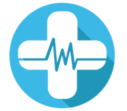Panic Disorder
Panic disorder is a type of anxiety disorder where you have sudden panic attacks.
Although it is normal to feel periods of anxiety throughout your life, a panic disorder is defined as feelings of anxiety, stress and panic regularly and for no apparent reason.
Symptoms
The main symptoms of a Panic Disorder are anxiety and panic attacks. Panic attacks are when your body experiences a rush of physical and mental symptoms, which can be extremely distressing. You may be experiencing a panic attack if you have any number of these symptoms:
- Racing heartbeat
- Feeling faint
- Sweating
- Nausea
- Chest pain
- Shortness of breath
- Trembling
- Hot flushes
- Chills
- Shaky limbs
- Dizziness
- Choking sensation
- Pins and needles
- Dry mouth
- A need to go to the toilet
- Ringing in your ears
- A feeling of dread or fear of dying
- Churning stomach
- Feeling like you're not connected to your body
The majority of panic attacks can last anywhere between 5 and 20 minutes. In some cases, it has been reported that a severe panic attack can last up to an hour.
The amount of panic attacks you have depends on the severity of your condition. Some people may experience panic attacks weekly, whilst others may suffer a couple of times a month.
Panic attacks can be extremely distressing and frightening, however, it is important to remember that they are not dangerous.
Treatment
Psychological talking therapies and medication are the main treatments for panic disorder.
Depending on the severity of your condition you may need one or both treatments in conjunction.
Psychological Therapies
If psychological therapies are something you are interested in learning more about, visit us at Ahmeys Pharmacy and we can help direct you to a psychological therapies service for treatment based on cognitive behavioural therapy (CBT).
Your therapist will be able to teach you different ways of changing your behaviour to help you keep calm during panic attacks.
Medication
Our healthcare professionals at Ahmeys may suggest that you speak with your doctor about medication to help with your pain disorder.
Examples of drugs they may prescribe are:
- A type of antidepressant called a selective serotonin reuptake inhibitor (SSRI) or, if SSRIs aren't suitable, a tricyclic antidepressant (usually imipramine or clomipramine)
- An anti-epilepsy drug such as pregabalin or, if your anxiety is severe, clonazepam (these medicines are also beneficial for treating anxiety)
Antidepressants can take 2 to 4 weeks to build up and 8 weeks to work fully.
It is important to keep taking your medication, even if you feel they are not working. Do not stop taking your medication unless advised by your GP.
Self-help
There are some things that you can do to help yourself when you are experiencing a panic attack. Next time you are feeling an attack coming on, you can try the following:
- Don't fight the attack and stay where you are, if possible
- Breathe slowly and deeply
- Remind yourself that the attack will pass
- Focus on positive, relaxing and peaceful images
- Remember it isn't life-threatening
Preventing further attacks
To help prevent further panic attacks, it may help to:
- Read a self-help book for anxiety
- Try complementary therapies such as yoga and pilates, to help you relax
- Learn breathing techniques to help alleviate symptoms
- Do regular physical exercise to reduce tension
- Avoid sugary food and drinks, caffeine and alcohol, and stop smoking, as all these things can make attacks worse
If you think you might have a panic disorder or would like more advice on how to deal with your symptoms, you can visit one of Ahmeys healthcare professionals for a consultation.





